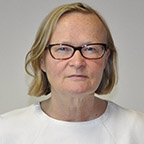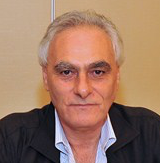- 19 Dec 2017
MEI Breaking News: The Killing of Ali Abdullah Saleh – Is Peace in Yemen Possible?
 jointly present:
jointly present:
Breaking News: The Killing of Ali Abdullah Saleh
Is Peace in Yemen Possible?
Abstract
The assasination of former president Ali Abdullah Saleh on December 4th, threw Yemen into an even deeper circle of violence. Two days before his execution, Saleh broke his alliance with the Houthis signalling his support for the Saudi coalition against the Houthis. Consequently, the Saudi coalition forces escalated air strikes in Sana’a desecrating any possibility of peaceful negotiations. Saleh’s execution not only indicated the military superiority of the Houthi militia, it also proved that, among the major northern tribes of Yemen, anger against Saudi warfare weighs more than loyalty to Saleh and his GPC party. As a result, Yemen finds itself in the worst humanitarian crisis in the world and in a political crisis where no other political force wants to cooperate with the Houthis. However, internally, the latter’s long-standing resistance to the Saudi intervention has been increasingly gaining popular support. At the same time, Southern Yemenis moved a step closer to another possible separation from Sana’a when the Southern Transitional Council was formed. Recently, a “national assembly” was announced to act as a parliament of the provinces that, before Yemeni unity in 1990, formed the independent state of PDRY. Taken that the Yemeni war increasingly resembles the North Yemeni civil war of 1962-70, Southerners are likely to move ahead with their long sought desire to return to brotherly relations with northerners, across the border.
About the Speakers

University of Helsinki and
Academic Scholar,
NUS Middle East Institute
and
Dr James Dorsey
Senior Fellow
RSIS Nanyang Technological University
Susanne Dahlgren is an anthropologist interested in moral questions, law and politics. She studied anthropology at the University of Edinburgh, the London School of Economics and Political Science (LSE) and the University of Helsinki where she received her PhD in 2004. She has been a fellow in the Helsinki Collegium for Advanced Studies and at the Academy of Finland. Her PhD project was published as Contesting Realities. The Public Sphere and Morality in Southern Yemen (2010). Her recent work has involved theorizing the Arab revolutions as part of a project on ‘Geographies of Gender in the Arab Revolutions’, convened by Frances Hasso and Zakia Salime. A recent photo essay was published in Muftah.org on ‘Rebels without Shoes: A Visit to South Yemen’s Revolution Squares.’ At MEI she has worked on a project entitled ‘Post-Socialism in the Arabian Peninsula: the Politics of Islam and Modernisation in South Yemen.’

Senior Fellow
RSIS Nanyang Technological University
James M. Dorsey is a Senior Fellow at the S. Rajaratnam School of International Studies (RSIS) under the Nanyang Technological University of Singapore. His area of speciality is on the Middle East and North Africa and publishes widely in peer-reviewed journals as well as non-academic publications. A veteran, award-winning foreign correspondent for four decades in the Middle East, Africa, Latin America, Europe and the United States for publications such as The Wall Street Journal, The New York Times and the Financial Times, James has met a multitude of the region’s leaders. As a journalist, James covered primarily ethnic and religious conflict, including some of recent history’s most dramatic events such as the 1973 Middle East war; the Lebanese civil war; the 1979 Soviet invasion of Afghanistan and the U.S.-backed insurgency that ultimately led to the withdrawal of Soviet troops; the Palestinian intifadas; the Iranian revolution, U.S. embassy hostage crisis and the Iran-Iraq war; the Iraqi invasion of Iraq and the toppling of Saddam Hussein; the Israeli-Palestinian peace process; the wars in Croatia, Bosnia, Kosovo and Serbia; the armed struggles in the Western Sahara, Algeria, the Philippines, Kashmir, Eritrea, Tigre, the Ogaden, Chad, Niger, Chechnya, the Caucasus and Georgia; the Columbian drug cartels; the fall of Noriega in Panama; the wars in Nicaragua and El Salvador; the Kurdish insurgency in south-eastern Turkey, post-revolution Iran and Saddam’s Iraq; and the war on terror. James writes a widely acclaimed blog, The Turbulent World of Middle East Soccer, has published a book with the same title, and authors a syndicated column. He is a frequent speaker at international conferences, workshops and seminars and is consulted by governments, corporations and judicial authorities. James won the Dolf van den Broek prize in 2003 and was a two-time nominee for the Pulitzer Prize in 1980 and 1988 as well as was a finalist for the 2012 European Press Prize; the Kurt Schork Award and the Amnesty International Media Award in 2002 and the Index on Censorship Award in 2012. James also co-directs the Institute of Fan Culture of the University of Wuerzburg.
Event Details
Block B, 29 Heng Mui Keng Terrace
Singapore 119620




